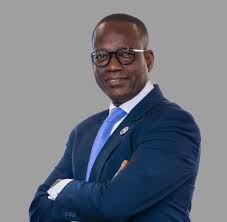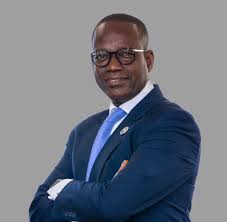ADF Partners Smart Africa Alliance to Launch $1.5 million Project to Enhance Digital Trade and e-Commerce Ecosystems in Africa
The African Development Fund and Smart Africa Alliance have jointly launched a $1.5 million project to streamline digital trade and e-commerce policies across 10 African countries. The Institutional Support for Digital Payments and e-Commerce Policies for Cross-Border Trade Project (IDECT (https://apo-opa.info/3L9ZNqA)) will evaluate policy gaps in the digital trade and e-commerce ecosystems of Côte d’Ivoire, Benin, Ghana, Liberia, Uganda, South Sudan, Zimbabwe, the Republic of Congo, São Tomé and Príncipe, and the Democratic Republic of Congo.

The project will see the implementation of regional training and capacity-building programs focusing on cross-border e-payment and e-commerce for governments, private sectors, and Small and Medium Sized Enterprises (SMEs). These programs are expected to reach 600 participants, with 60% being women and youth. Additionally, a certified gender-sensitive e-learning training program addressing the unique challenges faced by women in digital trade and e-commerce, will be developed and disseminated to 2,500 participants, of whom 60% will be women.
The agreement was signed on Tuesday, 25 April, a day ahead of the 2023 Transform Africa Summit which takes place in Victoria Falls, Zimbabwe, from 26-28 April. African Development Bank Director General for Southern Africa Region Leïla Mokaddem, described the IDECT as a pivotal step towards strengthening Africa’s digital trade and e-commerce landscape.
Read also : Debaj Group Pledges to Expand Business Network Across Africa
“This initiative will bolster the development of harmonized e-payment policies, capacity building, and gender-sensitive frameworks, ultimately fostering a digital trade ecosystem that generates employment opportunities across the continent,” she said.
Lacina Koné, CEO of Smart Africa, said: “The IDECT project demonstrates our commitment to fostering digital transformation and economic growth in Africa. By addressing policy gaps and promoting gender-sensitive training, we are laying the foundation for a thriving digital trade and e-commerce ecosystem.”
Kelechi Deca

Kelechi Deca has over two decades of media experience, he has traveled to over 77 countries reporting on multilateral development institutions, international business, trade, travels, culture, and diplomacy. He is also a petrol head with in-depth knowledge of automobiles and the auto industry







